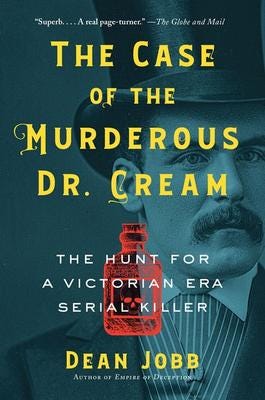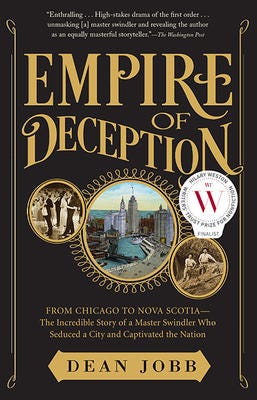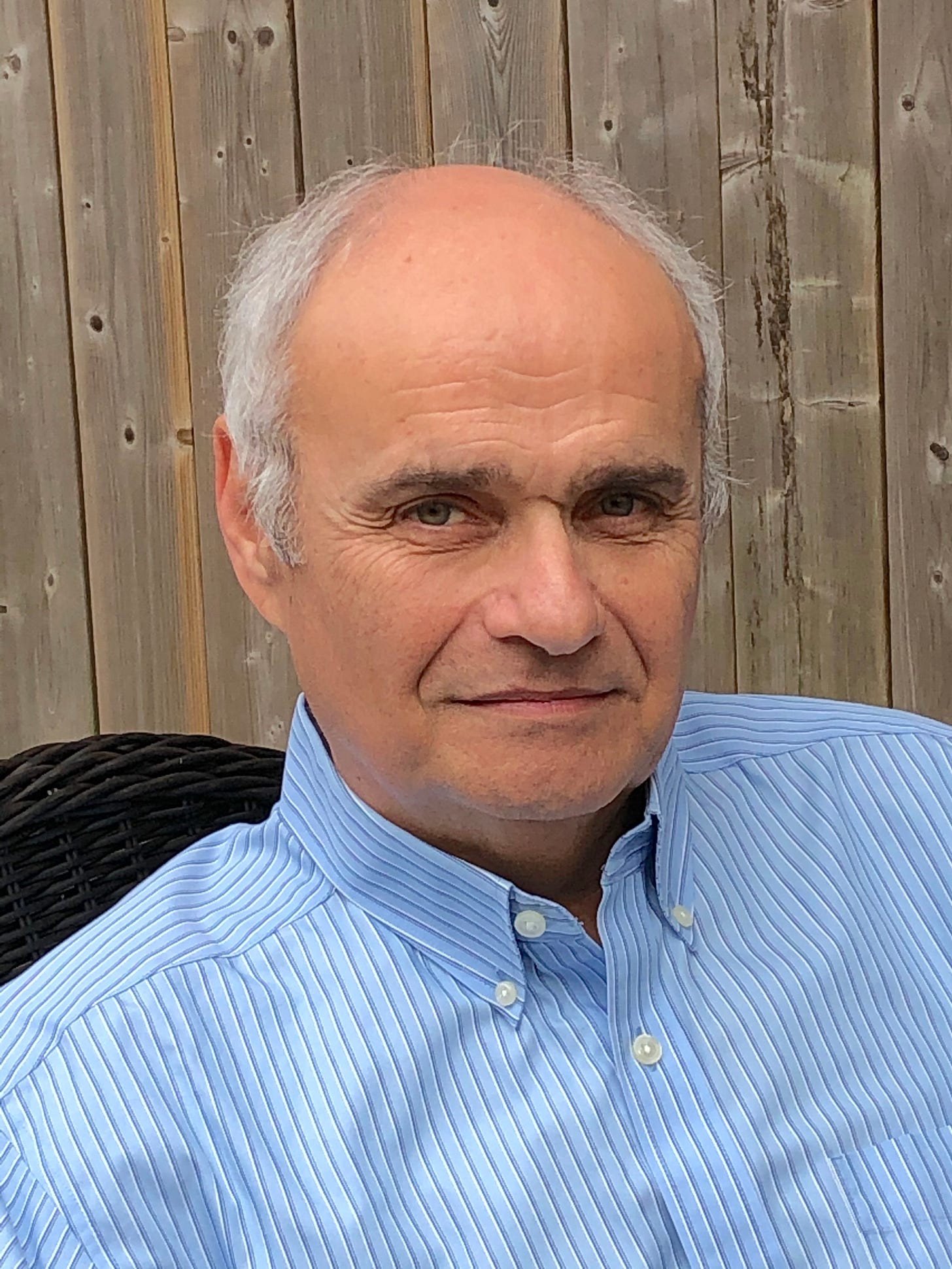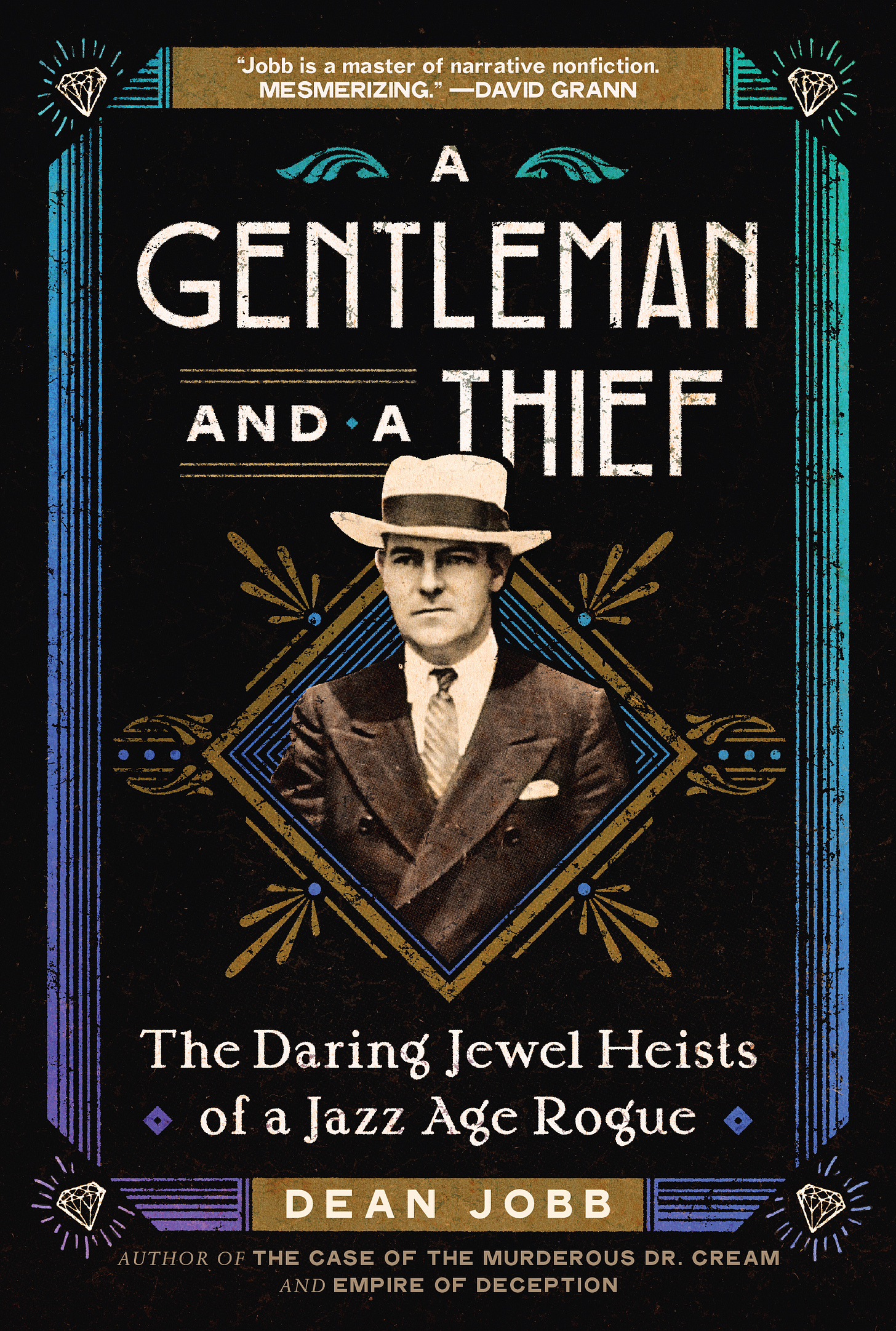Dean Jobb writes historical true crime. His latest book, A Gentleman and a Thief, tells the story of a Jazz Age burglar who charmed New York’s elite and stole jewels worth millions from their posh estates. The New York Times Book Review describes it as “delectably entertaining” and the Globe and Mail calls it a “rollicking real-life heist story.” It’s a New York Times Editors’ Choice and a Canadian bestseller. Dean’s 2021 book The Case of the Murderous Dr. Cream, which recreates Scotland Yard’s hunt for a Canadian serial killer who terrorized Victorian London, won the CrimeCon CLUE Award for true crime book of the year. Empire of Deception, his award-winning tale of a brazen 1920s con man, has been hailed by Esquire magazine as one of the best biographies of all time. Dean writes the monthly true crime column “Stranger Than Fiction” for Ellery Queen’s Mystery Magazine and his articles and commentaries have appeared in Air Mail, CrimeReads, the Globe and Mail, Toronto Star, The Irish Times and other publications. He’s a cohort director and professor emeritus in the MFA in Creative Nonfiction program at the University of King’s College in Halifax.
What is your writing practice like?
I specialize in historical true crime and every book requires extensive research, everything from history books and memoirs to newspapers, archival records, and long-forgotten court files. Nonfiction writers don’t embellish or invent and this is the raw material I need to recreate scenes, flesh out characters, and inject context and details that bring lost worlds to life for readers. I research for months before I begin to write. As the book takes shape, I complete the research for each chapter as I write it. I draft an outline as a guide, but it changes as the book comes together and I get a better sense of how the pieces fit and where the story is headed.
Describe your writing space. What do you love about it?
My home office is lined with built-in bookcases, mostly filled with books I’m consulting for my latest project. A shelving unit, salvaged from an antique dealer’s barn and refinished, holds the three-ring binders I use to arrange my research materials. I’m surrounded by everything I need for my book-in-progress. My desk is an oak monster, a vintage office model that I saved from the landfill. I have a view of a river valley lined with farms and orchards, with glimpses of Cape Blomidon and the Bay of Fundy in the distance. This is more of a home base than a writer’s retreat, though. I can write anywhere, no matter how noisy or distracting – the upside of learning to write amid the chaos of a newsroom – and in the summer I do most of my work on the deck or patio.
Why do you write? What do you love about writing?
I’m curious and I’m always on the lookout for stories worth telling. I suppose what drives me is the challenge of collecting scattered nuggets of information, figuring out what happened, and building a narrative that recreates the story and its drama, setting, characters, and historical context.
“Research is a like a treasure hunt and every story is a mystery waiting to be solved. Everyone needs a hobby. This is mine.”
Do you want each book to stand on its own, or are you trying to build a body of work with connections between each book?
The thread that runs through my books is the exploration of how true crime offers a window on the past. I’m always on the lookout for crimes with backstories that reveal what life was like when they occurred – what people thought and believed in those days, how they behaved and, of course, how they misbehaved. I started writing true crime almost four decades ago, as a journalist covering the legal beat. I studied history in university, so I began writing feature articles that recreated murders and other crimes from the past – famous cases as well as obscure ones. It was a logical transition from these short true crime stories to book-length accounts.


Best advice you’ve ever been given.
I once interviewed David Grann, the bestselling author of Killers of the Flower Moon and The Wager, for a King’s MFA writing residency session. The writer’s job, he said, is to find and research the story, then get out of the way. In other words, show, don’t tell. Recreate, don’t narrate. Have the confidence to stand back and let the story tell itself.
Tell us a few things that would surprise us to learn about you: the person, the writer.
Many writers grew up in homes filled with books, but there were few in our house when I was young and I’ve been playing catch-up ever since. When I’m not immersed in the latest true crime books, I read the great detectives of classic crime fiction – Agatha Christe’s Poirot, Sherlock Holmes and Dr. Watson, Georges Simenon’s Inspector Maigret. I’ve read The Great Gatsby at least a half-dozen times and always discover new insights into the Jazz Age. And gardening and landscaping projects get me outside and give me a break from writing.
Who are your favourite writers writing today?
It’s a long list. David Grann, Erik Larson, Charlotte Gray, Candice Millard, Mitchell Zuckoff, Jonathan Eig, Gary Krist – they’re all master storytellers. So are Abbott Kahler, Deborah Blum, Lindsey Fitzharris, Steven Johnson, Kate Summerscale, and Hallie Rubenhold, who have a knack for finding intriguing and timely stories that have been hiding in plain sight. My true crime must-reads include anything by Sarah Weinman, Kate Winkler Dawson, and Michael Cannell, and I can’t wait to see what Joe Pompeo, Nathan Masters, and Michael Wolraich come up with next after their strong debuts in the genre.
What advice do you have for writers?
Read. Find authors you admire and decode how they tell and structure their stories, how they make effective use of their research, and the tricks they use to keep readers immersed in the narrative. And spend time not writing. Give yourself space to think about the material, how events and scenes fit together and how best to shape them into a story. Some of the best inspirations come when you’re behind the wheel, walking the dog, or puttering in the garden. Then write while these insights are still fresh.
Thank you Dean.
To find out more about Dean, and to learn about his next book, visit him at www.deanjobb.com





Dean is a master at writing CNF that reads like thrilling fiction.
Great read, thanks for the great advice Dean!! Love the bit about finding the story, then get out of its way!